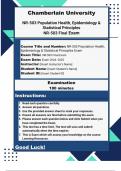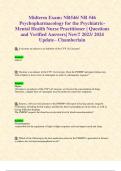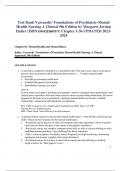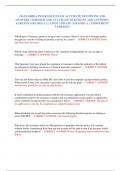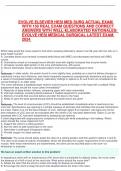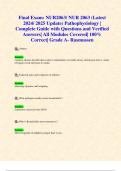Exam (elaborations)
NR-503 Population Health, Epidemiology & Statistical Principles NR-503 Final Exam Review Questions with Verified Correct Answers | 100% Pass Guaranteed | Graded A+ |
- Institution
- Chamberlain College Of Nursing
NR-503 Population Health, Epidemiology & Statistical Principles NR-503 Final Exam Review Questions with Verified Correct Answers | 100% Pass Guaranteed | Graded A+ |
[Show more]
